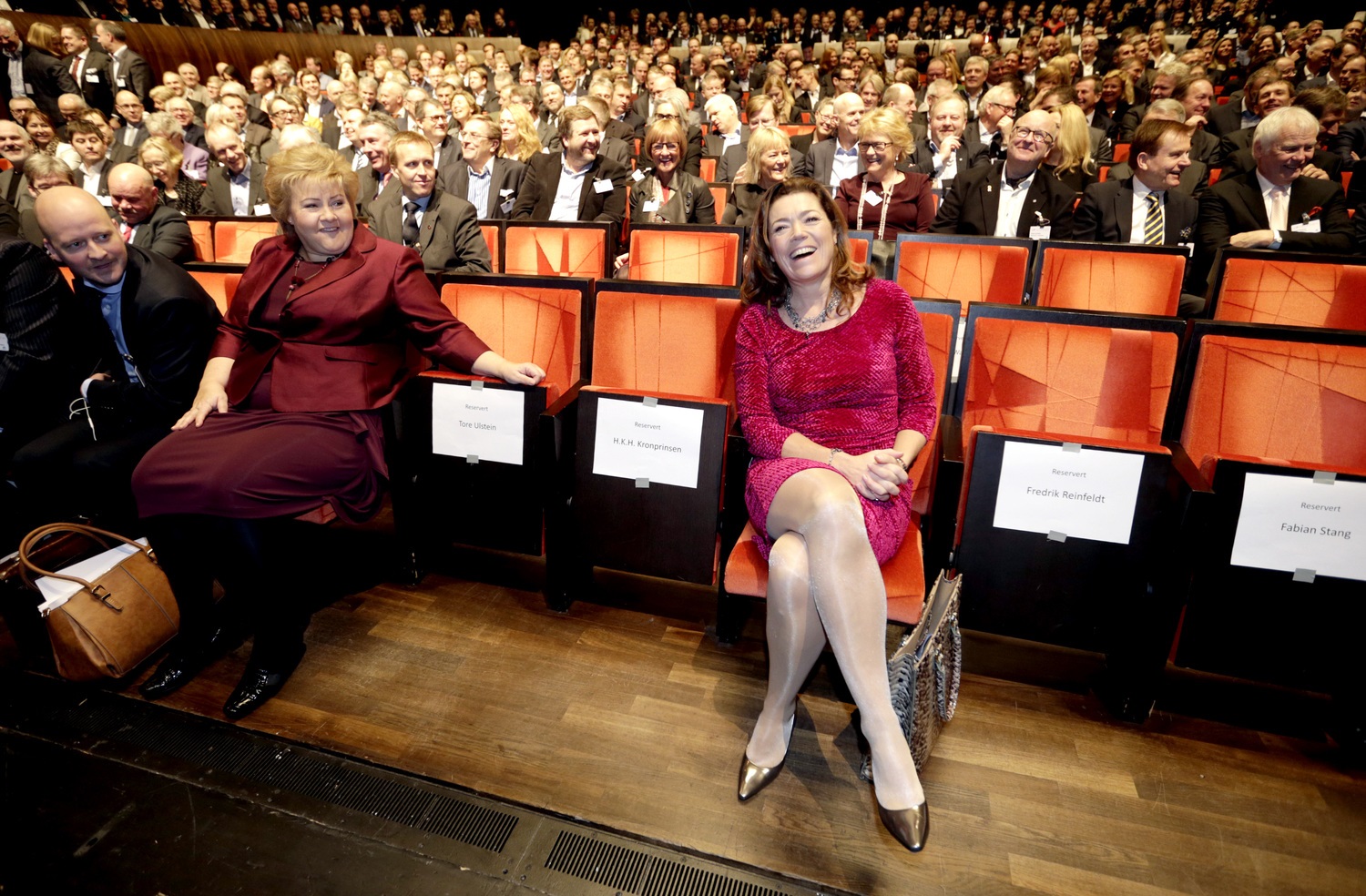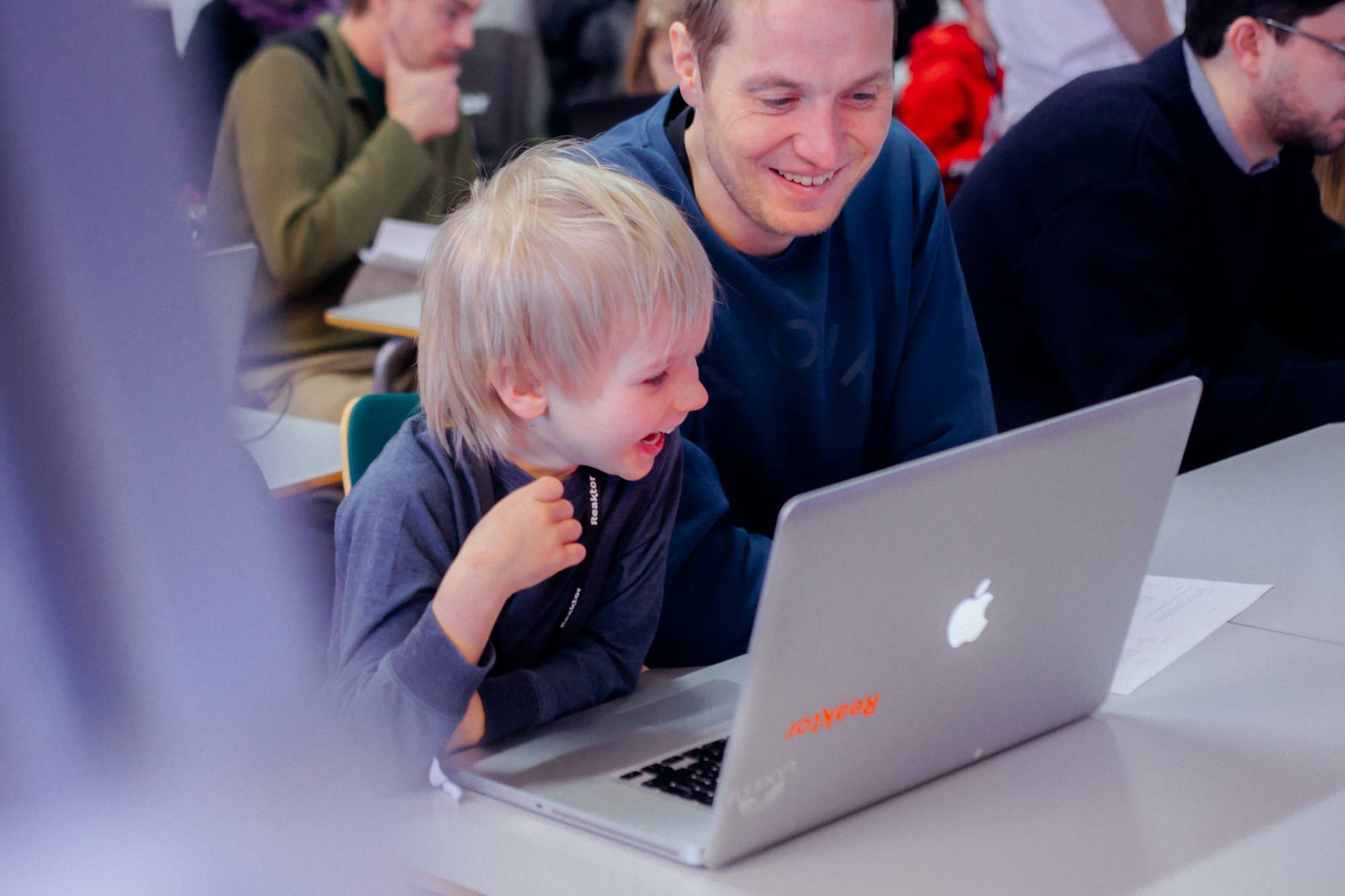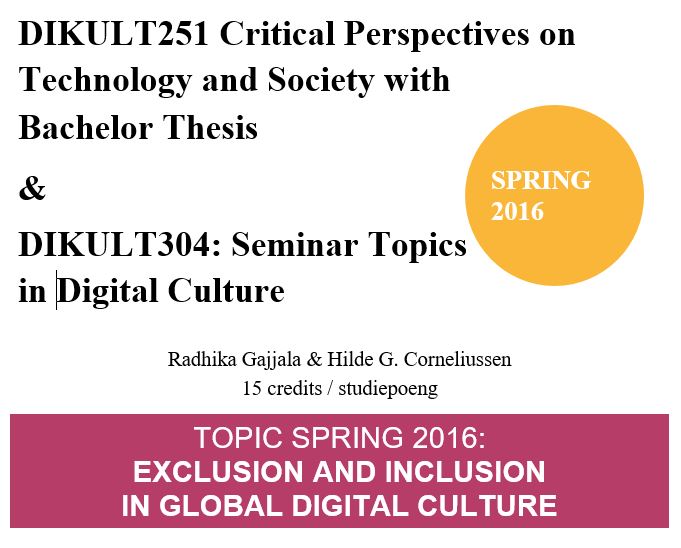CaTaC’16: Culture, Technology, Communication: Common world, different futures?

Venue: University of West London
Dates: June 15-17, 2016
Paper submission for peer-review: February 15, 2016
Source: Call for Papers

CaTaC’16: Culture, Technology, Communication: Common world, different futures?

Venue: University of West London
Dates: June 15-17, 2016
Paper submission for peer-review: February 15, 2016
Source: Call for Papers
 Det at anerkjente kvinnelige ledere kler seg på en tradisjonelt feminin måte, kan endre måten vi oppfatter feminine tegn og symboler på, mener forskere.
Det at anerkjente kvinnelige ledere kler seg på en tradisjonelt feminin måte, kan endre måten vi oppfatter feminine tegn og symboler på, mener forskere.
Source: En leder kan ha autoritet også i kjole og perler | forskning.no
Interessant studie om autoritet og tradisjonelle maskuline og feminine symboler og iscenesettelse gjennom klær og estetikk.
A. Bolsø, W. Mühleisen: Framstillinger av kvinner kledd for makt. Tidsskrift for norsk kjønnsforskning, Årg. 39, Nr. 3-4, 2015.
 Encouraged by the positive feedback from the participants, we agreed that all children should get the chance to try out the basics of programming in a fun, tangible way. Word of a public code club spread through word of mouth and social media, and the registration for the first Code School filled up within an hour. Over 300 children were placed on a waiting list.
Encouraged by the positive feedback from the participants, we agreed that all children should get the chance to try out the basics of programming in a fun, tangible way. Word of a public code club spread through word of mouth and social media, and the registration for the first Code School filled up within an hour. Over 300 children were placed on a waiting list.
“BUT how can we get boys and girls excited about coding?” they ask in the video. By drawing with code!
Code School from Reaktor on Vimeo.
Source: Code School for children and heads of state – Reaktor
Nonprofit Girls Who Code is giving away scholarships to low-income girls who want to take their free summer coding classes. Here’s why.
Roughly 1% of girls study computer science — and just 20% of software developers are women. So Girls Who Code alumni have the potential to add a big influx of women into the STEM pipeline.
Source: Girls Who Code to give $1 million to underprivileged girls – Jan. 19, 2016
 Memory, Commemoration and Communication: Looking Back, Looking Forward
Memory, Commemoration and Communication: Looking Back, Looking Forward
An opportunity to spend a couple of days in late July in Leicester!
The International Association for Media and Communication Research (IAMCR) invites submissions of abstracts for papers and panel proposals for the 2016 IAMCR conference to be held from 27 -31 July, 2016 in Leicester, UK. The deadline to submit abstracts is midnight GMT on 15 February 2016.
See CFP
 Interested in what makes some people or groups become excluded from (global) digital culture? And what we can do to achieve higher degree of inclusion?
Interested in what makes some people or groups become excluded from (global) digital culture? And what we can do to achieve higher degree of inclusion?
Together with Fulbright Professor Radhika Gajjala I will be teaching DIKULT251 and DIKULT304 this semester, and we have built a course around the topic of exclusion mechanisms and inclusion strategies in global digital culture.
We will have new guest researchers every week, talking about their own research with reference to inclusion/exclusion. Our first guest is Lin Prøitz on the 19th of January, and she will talk about Visual Social Media Lab and their report: “The Iconic Image on Social Media: A Rapid Response to the Death of Aylan Kurdi“.
![]()

Image from Ec.europa.eu…. “What is Horizon 2020?”
SwafS-11-2017
TOPIC : Science education outside the classroom
Deadline: 30 August 2017
Read the entire call here. Just sharing the section “expected impact” below:
In the short term, the proposed action will identify good practices in terms of science education outside the classroom and consider the impact this information has on formal and informal science education for students and citizens. In the medium term, the results of the present action will help the EU to better understand the effects of science education outside the regular education institutions and will increase the range of innovative products in science education that reflect societal needs. In the long term the results of the research should contribute to considerations on accrediting the available information.
After three H2020 application in the field of STEM (still waiting for the evaluation of the last one!) we have some partners, however this call expects a consortia that includes “at least entities from 10 different Member States or Associated Countries”. Feel free to contact us if you think that you could contribute to this call.
– Kunnskap om korleis digital teknologi fungerer er sentralt i eit samfunn som vårt, seier forskar.
Intervju på Forskning.no, av Idun Husabø
http://forskning.no/skole-og-utdanning/2015/12/bor-kidsa-kode-pa-skulen

Bilde fra Forskning.no